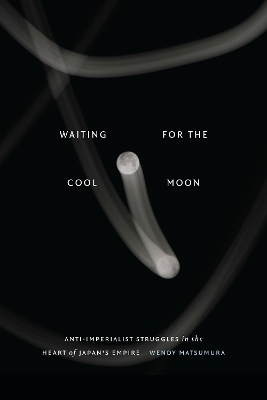
Waiting for the Cool Moon
Anti-imperialist Struggles in the Heart of Japan's Empire
Seiten
2024
Duke University Press (Verlag)
978-1-4780-2569-6 (ISBN)
Duke University Press (Verlag)
978-1-4780-2569-6 (ISBN)
Wendy Matsumura examines the history of the colonial projects and violence of interwar Japan while critiquing Japan studies’ participation of the erasure of this history in its study of the formation of the Japanese nation-state.
In Waiting for the Cool Moon Wendy Matsumura interrogates the erasure of colonial violence at the heart of Japanese nation-state formation. She critiques Japan studies’ role in this effacement and contends that the field must engage with anti-Blackness and anti-Indigeneity as the grounds on which to understand imperialism, colonialism, fascism, and other forces that shape national consciousness. Drawing on Black radical thinkers’ critique of the erasure of the Middle Passage in universalizing theories of modernity’s imbrication with fascism, Matsumura traces the consequences of the Japanese empire’s categorization of people as human and less-than-human as manifested in the 1920s and 1930s, and the struggles of racialized and colonized people against imperialist violence. She treats the archives safeguarded by racialized, colonized women throughout the empire as traces of these struggles, including the work they performed to keep certain stories out of view. Matsumura demonstrates that tracing colonial sensibility and struggle is central to grappling with their enduring consequences for the present.
In Waiting for the Cool Moon Wendy Matsumura interrogates the erasure of colonial violence at the heart of Japanese nation-state formation. She critiques Japan studies’ role in this effacement and contends that the field must engage with anti-Blackness and anti-Indigeneity as the grounds on which to understand imperialism, colonialism, fascism, and other forces that shape national consciousness. Drawing on Black radical thinkers’ critique of the erasure of the Middle Passage in universalizing theories of modernity’s imbrication with fascism, Matsumura traces the consequences of the Japanese empire’s categorization of people as human and less-than-human as manifested in the 1920s and 1930s, and the struggles of racialized and colonized people against imperialist violence. She treats the archives safeguarded by racialized, colonized women throughout the empire as traces of these struggles, including the work they performed to keep certain stories out of view. Matsumura demonstrates that tracing colonial sensibility and struggle is central to grappling with their enduring consequences for the present.
Wendy Matsumura is Associate Professor of History at the University of California, San Diego, and author of The Limits of Okinawa: Japanese Capitalism, Living Labor, and Theorizations of Community, also published by Duke University Press.
Acknowledgments ix
Introduction 1
1. Empire and Oikonomia 17
2. Enclosure and the Community of the Commons 37
3. Buraku Women against Tripled Sufferings 60
4. Housewifization, Invisibilization, and the Myth of the New Small Farm Household 83
5. Interimperial Korean Struggle in Fertilizer’s Global Circuit 108
6. Empire Through the Prism of Phosphate 134
7. Water Struggles in a Colonial City 161
Conclusion. Waiting, Witnessing, Withholding 185
Notes 193
Bibliography 241
Index 261
| Erscheinungsdatum | 08.12.2023 |
|---|---|
| Zusatzinfo | 18 illustrations |
| Verlagsort | North Carolina |
| Sprache | englisch |
| Maße | 152 x 229 mm |
| Gewicht | 408 g |
| Themenwelt | Geisteswissenschaften ► Geschichte ► Regional- / Ländergeschichte |
| Geschichte ► Teilgebiete der Geschichte ► Wirtschaftsgeschichte | |
| Sozialwissenschaften ► Politik / Verwaltung | |
| ISBN-10 | 1-4780-2569-7 / 1478025697 |
| ISBN-13 | 978-1-4780-2569-6 / 9781478025696 |
| Zustand | Neuware |
| Haben Sie eine Frage zum Produkt? |
Mehr entdecken
aus dem Bereich
aus dem Bereich


